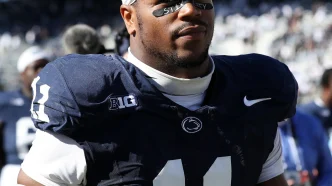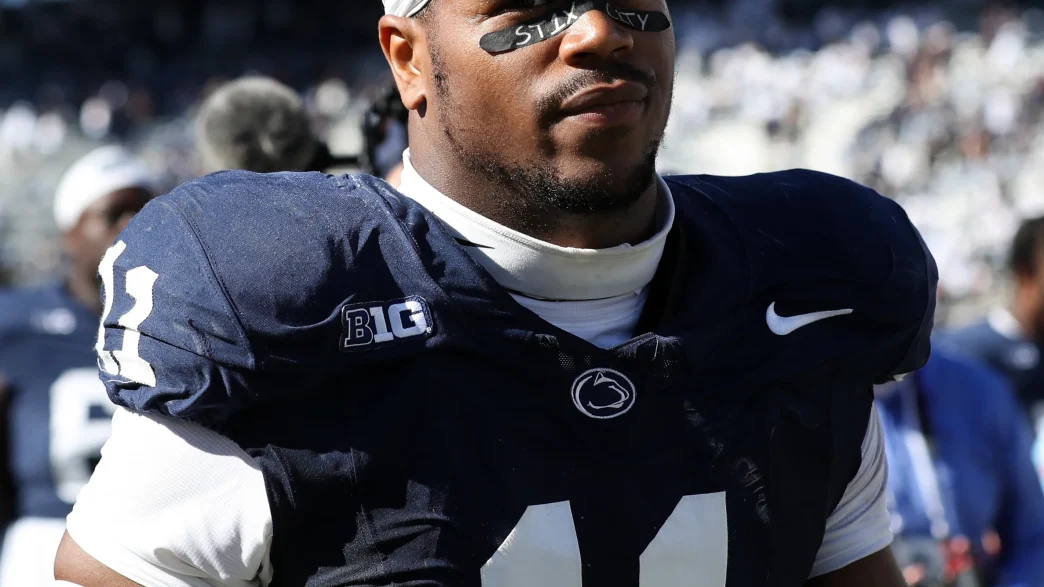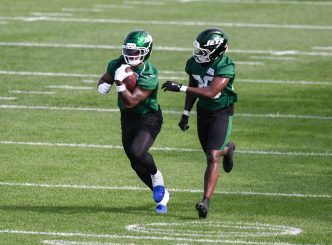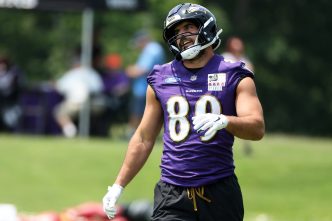The Detroit Lions made headlines recently with their draft decisions, particularly surrounding the edge rusher position. General Manager Brad Holmes faced a barrage of questions after the second day of the draft, and he was quick to clarify his approach to assembling a formidable defense.
“It’s not about just drafting an edge rusher for the sake of it,” Holmes emphasized. “You need to ensure the player fits your board and is genuinely talented.” He pointed out that the drafting process involves more than just selecting a name off a list; it’s about strategic positioning and assessing the quality of the available talent. Holmes recalls times when they attempted to trade up for a player but found that the ones they targeted had already been selected, or he simply preferred another player who was rated higher on their board.
This season’s draft saw four edge rushers picked in the first round before the Lions’ turn at No. 28. Among those were Shemar Stewart, who landed at No. 17 with the Bengals, and James Pearce Jr., chosen at No. 26 by the Falcons, courtesy of a trade with the Rams. Recognizing the scarcity of top-tier edge rushers, Holmes noted, “There are still some guys left who we like,” implying that they weren’t done yet and that he had plans brewing for potential trades.
The real action likely unfolded in the second round, where Holmes and his team again fell short. Notably, Donovan Ezeiruaku went to the Cowboys at No. 44, JT Tuimoloau to the Colts at No. 45, Nic Scourton to the Panthers at No. 51, and Oluwafemi Oladejo to the Titans at No. 52. Each of these players showcased the attributes the Lions value, especially Scourton, who was regarded as a formidable pocket-crusher with the ability to defend against the run.
Instead of an edge rusher, the Lions opted for Georgia guard Tate Ratledge, trading up three spots to secure him. Later in the draft cycle, six more edge rushers were taken in the third round, but it was in the sixth round that the Lions finally addressed that need by selecting Ahmed Hassanein from Boise State. Despite being relatively new to the game, having moved to the U.S. from Egypt in recent years, Hassanein’s raw talent shines through, particularly his relentless motor and impressive stats, which include 22 sacks and 33 tackles for loss over his final two seasons.
Holmes was enthusiastic about Hassanein’s potential, noting that understanding the nuances of the position is crucial. “At the end of the day, he’s got to win rushes and set edges,” Holmes explained. He praised Hassanein’s intensity, sharing how the player’s enthusiasm and passion for the game left a strong impression during their conversations.
The Lions have had their fair share of scrutiny regarding their edge rusher situation. When asked if he would finally be able to put those questions to rest, Holmes chuckled, recognizing the pressure from reporters: “Well, I don’t know if this sixth-round pick will suffice.”
Holmes also hinted that the door remains open for further reinforcements at the edge rusher position as the season unfolds. “Building a roster is an ongoing challenge,” he stated. “We’re always looking for ways to improve, whether that involves identified starters or depth within the team.” His commitment to continuous improvement reflects a progressive mindset that aims to elevate the Lions to a competitive stature in the league.
With their selections and a clear strategy in place, it’s evident that the Lions aim not only to build for the present but also to secure a bright future. The pursuit of quality talent never stops, and for Lions fans, that’s exactly the kind of commitment they want to see in their front office.








